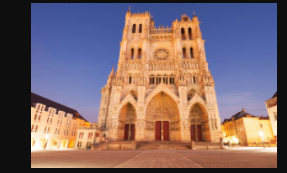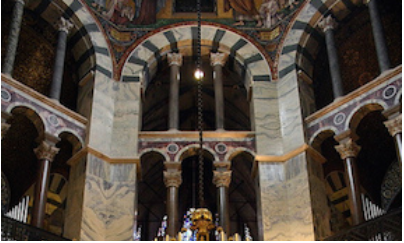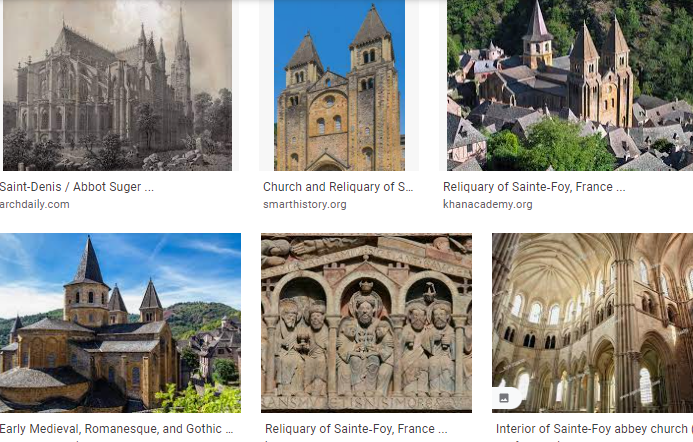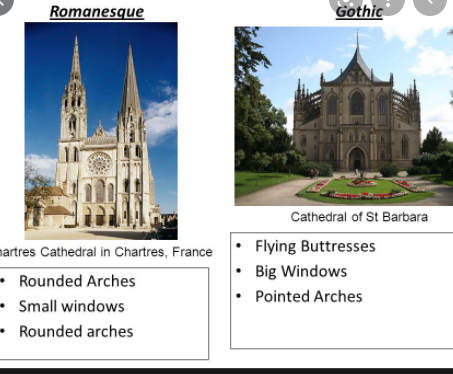The medieval period is also known as the Middle Ages and was characterized by continuous change. It began around 476 A.D. Charlemagne made the most considerable impact during the early Middle Ages. During this period, there were a lot of cultural and artistic achievements, primarily through architectural developments, which is the key creative work explained in this paper. Christianity was greatly influenced by the visual arts and literature, and music during the period.
As the leading creative work, architecture influenced aesthetic, philosophical, and cultural ideals during the period. The architecture led to significant contributions to the Middle Age. Such contributions include the Bayeux Tapestry, the Abbey Church of Sainte-Foy, and the Church of Saint-Denis (Warrensburg, 2021). The end of median age resulted from the rise of the Renaissance. Charlemagne saved Europe from cultural stagnation since he encouraged the culture and the arts and education. The two main architectural styles included the Romanesque style and the Gothic style. Romanesque Architecture was the first important style of architecture influenced by roman architecture as it was developed when the Roman Empire collapsed.
Semi-circular arches marked Romanesque architecture, and since the architecture of the Middle Ages went through significant changes, the changes led to Gothic architecture. As the Gothic style developed, it brought a new standard of beauty, demonstrating the period’s aesthetic ideal. Architecture helped in the elevation of souls of worshipers to the spiritual realm. Rib vaulting in the Gothic style replaced the extensive stonework of the Romanesque style (Warrensburg, 2021). The Gothic style’s aesthetic ideal resulted from its thinness with columns and windows that brought the human eyes to gaze at heaven. The glasses were stained in all Gothic-style cathedrals and were designed to tell bible stories. Restriction of early art was on religious art such as Christian art, where Christianity became the dominant religion during the medieval era in Europe, influencing all forms of art during this time.


The most significant art contributions from the Middle Ages are the Bayeux Tapestry, the Abbey Church of Sainte-Foy, and the Church of Saint-Denis, where the most iconic piece is the Bayeux Tapestry from the Middle Ages. Depictions of the invasion of England are contained in the enormous amount. The tapestry mainly demonstrates architecture, religious symbols, and dress (Warrensburg, 2021). The Abbey Church of Sainte-Foy is an example of Romanesque style architecture and is one of the oldest pilgrimage churches which held the relics of Saint Foy. The vaults represented the main features of Romanesque architecture. The message depicted on the tympanum was the critical mark of the church. The scene depicted reminded those entering the church about heaven’s joys and the tormenting hell. The depiction was incredible and an example of Christian art during the medieval era. The Church of Saint-Denis held many relics of the patron saint of France. The bones of kings were born, and every year the church was visited by thousands of pilgrims every year. It had a whole new style of architecture called the Gothic style or the architecture of light, where the glass windows were made from sapphire blues, ruby reds, and emerald greens.

The philosophical ideal of the architecture is beyond the aesthetic as the ethics of the architecture was to address traditional issues such as delineation of rights and justice in architectural milieus and the social and technological characteristics. The gothic style was religiously inspired by morality and depicted essential structures different from the existing dominant neo-classism. The design used was to bring to attention the materials used in the construction. It summarizes the aesthetic and functional ideal where its function, which was the celebration of God, made it necessary to factor in the importance of aesthetics. The builders’ skills influenced the gothic style, where the external supporting systems and vaults were used, allowing the gothic building to attain immense heights.
The Romanesque architectural design and the Gothic architectural designs are fundamental as they have influenced the way architects design buildings. The two methods led to the introduction of new features used in the construction of buildings. Today, one of the features that have shaped architectural design is the vault, where the aspects of the Romanesque structures later improved into the Gothic style, such as the vault. The Gothic style used masonry walls to support the vaults in gothic styles. The arches, first developed in the Romanesque, were later enhanced in the Gothic styles. The Gothic architectural designs exhibited the unique use of pointed arches, flying buttresses, vertical lines, and slender skeletons within walls. The Romanesque architectural design incorporated thick heavy walls, small windows, and rounded arches (Warrensburg, 2021). The two techniques have influenced the construction of not only beautiful buildings but permanent ones too that are very strong. Therefore, the designs have significant importance in history, providing the designers of today with better skills in the construction of large modern buildings.

Work Cited
Warrensburg Jacques. “Muslim Studies of Other Religions: The Medieval Period.” Muslims and Others in Early Islamic Society. Routledge, 2021. 211- 239.